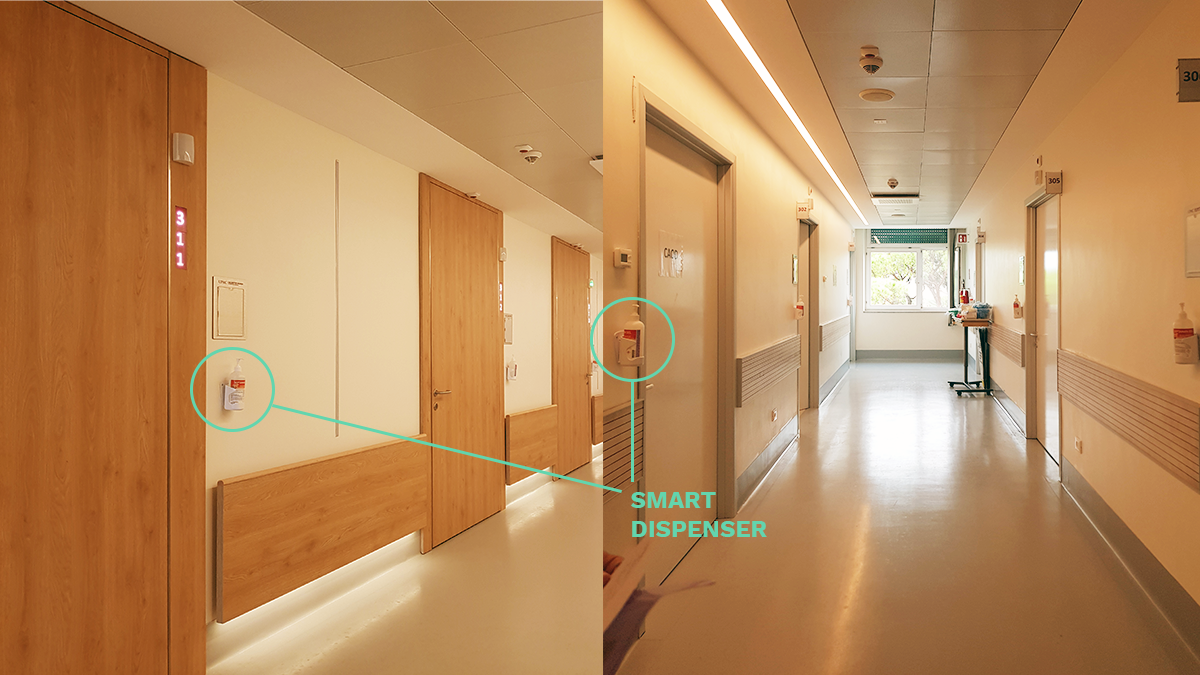Enhancing Health Standards and Hospital Workflow Efficiency Through Digital Solutions
The project called Matrics (an acronym that stands for Multi-Assessment Technique for Reducing the Impact of Contamination Scenarios), was funded under the BI-REX research grant, and aimed to improve health standards and optimize hospital workflow.
The Matrics project focused on digitizing processes and implementing Industry 4.0 technologies in healthcare settings. Through two pilot actions, the project aimed to test RTLS technology for infection risk containment and monitoring of hand hygiene compliance.
Without loss of generality, the project was based in two different hospitals in Italy, the Salvator Mundi International Hospital (SMIH) in Rome, and Ospedale Santa Maria della Scaletta in Imola. By leveraging Real Time Location Services (RTLS) technology, the project focused on monitoring hand hygiene compliance and analyzing hospital services retrospectively.
Overall, the project leverages IoT devices spread all over the venue of interest to implement a People-tracking solution. Not only that, since the hospital was pervasively enhanced with smart soap dispensers, able to report any use. Utilizing RTLS technology on the localized people, an Android mobile application was developed to monitor user entry/exit in various hospital rooms. Users were categorized based on their roles, enabling the tracking of their movements at any time. Key Performance Indicators (KPIs) included achieving 99% accuracy in hand hygiene compliance, thus increasing the operating standard of the hospital while reducing risks and minimizing external interferences in hospital operations.

The primary goal of the Matrics project was to provide updated positioning data of the personnel of the hospital. In this way, the second phase of the project could start, which is the development of dedicated systems in healthcare facilities to monitor hand-washing practices. This system aimed to optimize services and staff movements within hospitals while monitoring hand-washing events at any time.
The project anticipated benefits for various stakeholders, including healthcare personnel, risk management, hospital services, and patients/visitors. By automating monitoring processes and implementing digital tracking, the project aimed to enhance infection control measures, improve risk management, streamline hospital services, and enhance the overall patient experience.
Starting at a Technology Readiness Level (TRL) of 6, the project aimed to reach a TRL of 7 by testing the prototype solution in real operational environments. The project commenced in August 2021 and was expected to last for 18 months.
BI-REX, a Competence Center specializing in Big Data, funded the Matrics project. The consortium, led by Rekeep and involving partners such as University of Pittsburgh Medical Center Italy (UPMC) and Nextome, collaborated with Alma Mater Studiorum – Università di Bologna to design pilot cases and analyze the impact of new processes in hospital settings.
The Matrics project represented a collaborative effort to introduce digital solutions aimed at improving health standards and workflow efficiency in hospitals. Through innovative technologies and strategic partnerships, the project aimed to address key challenges in infection control and enhance overall healthcare delivery.
